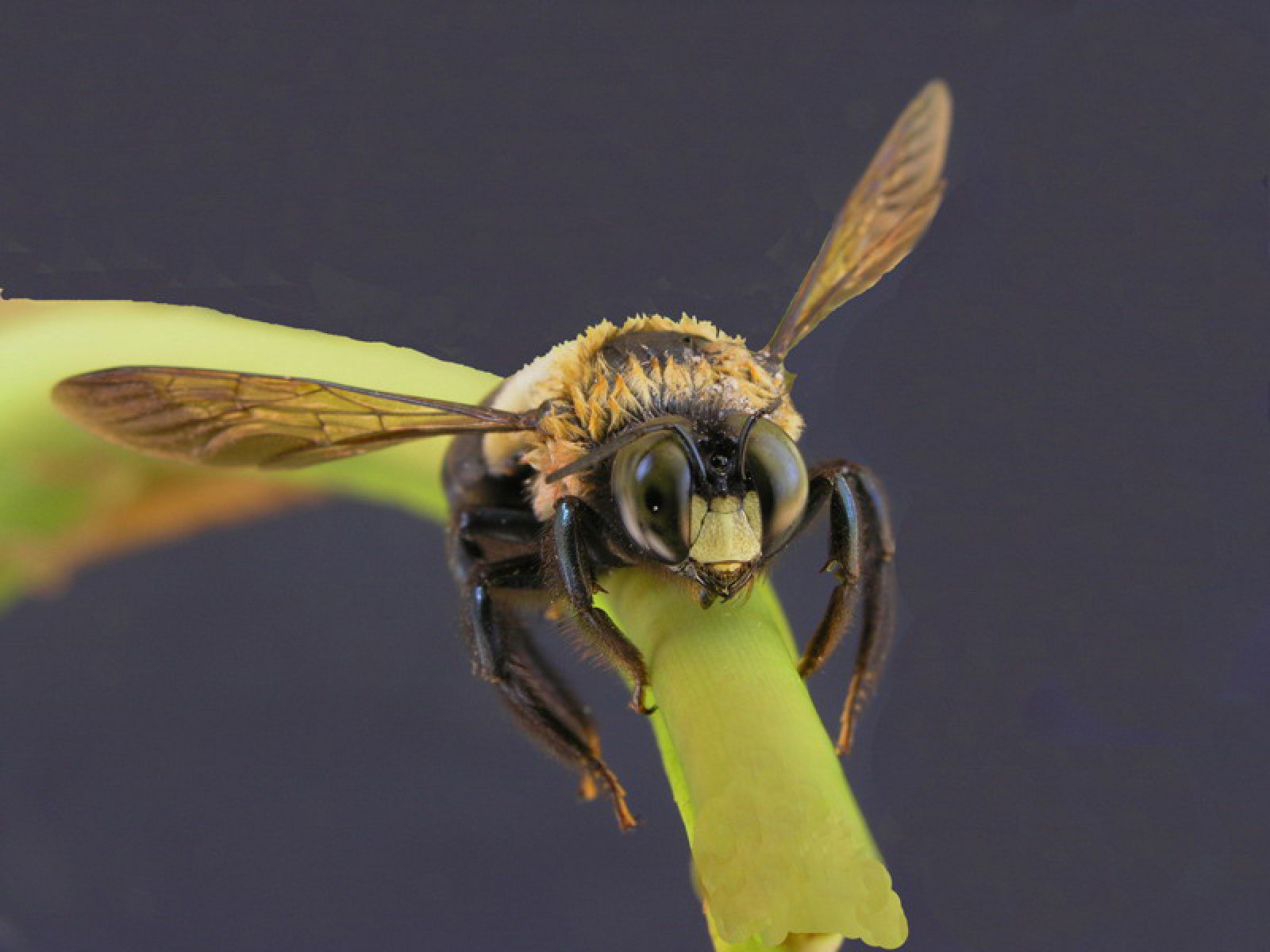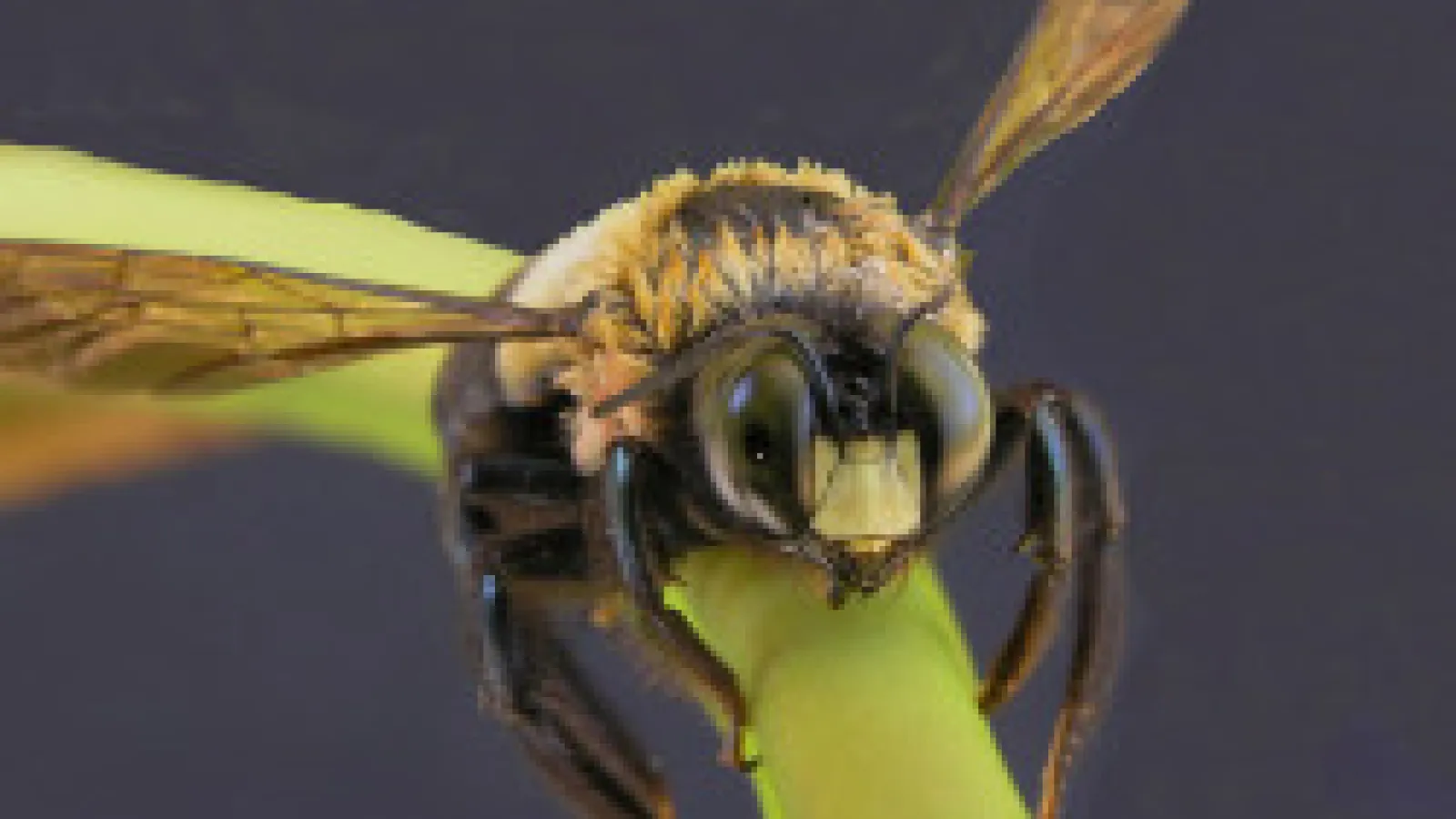There is a common misconception that all bees are dangerous and out to harm you. That is just blatantly false. As a matter of fact, some bees don't even have stingers, like the male carpenter bee. Bees are the most important pollinators in our ecosystem, and they are more interested in doing their job than interacting with, or pursuing, you.
A Quick Overview of Carpenter Bees
Commonly confused with bumble bees, because of their similar color and size, carpenter bees are a fairly common find in your backyard. Carpenter bees tunnel into wood to lay their eggs. The more natural the wood, the more likely the carpenter bees will be attracted to it. To deter carpenter bees from nesting in your wooden structures, paint them or pressure-treat them. This is make your wood less susceptible to infestation and damage.

Attack and Defense
Though the male carpenter bees cannot sting, they are quite aggressive when it comes to protecting and defending their nests. It is extremely common for the male carpenter bees to swoop down on you if you are approaching, or getting too close to, their nests. Though harmless, the dive-bomb type of attack is very intimidating due to the large size of the bee and the loud buzz. This swoop and dive style of attack is resemblant of their territorial traditions. They will hover around their nests and dart at any other flying insects that enter their territory.
The female carpenter bees are the exception to the stinger rule. They do have a stinger, and the ability to sting. Luckily, it is very unlikely to get stung by a female carpenter bee unless you are agitating them or their burrows. If attempting to treat your yard, or nesting site, it is recommended to do so at night, while bees are less active, or while wearing protective gear. The sting of the female carpenter bee is very painful. If the pain from the sting is unbearable, you can use over-the-counter antihistamines and painkillers to reduce pain and swelling. See a doctor if symptoms of an allergic reaction appear.
Importance of Pollinators
In the United States, one third of all agricultural output is dependent on pollinators. Insects and other animal pollinators are vital to the production of healthy crops for food and other products. Wild bees happen to be the number one pollinator. You might be wondering how these wood-loving bees help with pollination.
Contrary to popular belief, carpenter bees do not feed on wood. Carpenter bees only use wood to lay eggs and reproduce. They actually feed on nectar and make a special concoction of pollen and regurgitated nectar to feed their larvae. Upon gathering this pollen for their young, they cross pollinate other plants, making them a key pollinator.
Appropriate and Safe Treatment
It is important to be happy and comfortable on your own property, but it is also important to preserve valuable pollinators. Carpenter bees, like other pollinators, are very beneficial to the environment, so only treat them if you need to. If you are looking to treat your property for infestation of pests, do it the right way. Breda Pest Management goes to great lengths to protect pollinators when we treat for other insects, like mosquitoes and ticks.
· Here are some helpful tips for you to prevent and discourage carpenter bees from infesting your wood:
· Paint, stain, or treat your exposed wood. Carpenter bees favor untreated, bare wood. If your wood is treated and coated with a slippery coating, it will make it difficult for carpenter bees to interact with it.
· Eliminate attractants close to your home by making sure your trash bins are secured, and there are no sugary drinks or foods left out in your yard.
· Keep your home, garage, and shed doors closed, as well as sealing any other openings to your property.
Here are a few steps you can take to deal with carpenter bees and their burrows:
· Carpenter bees are very sensitive to noise, and the vibrations caused by them. Set up a boombox, or noise machine, near their dwellings to encourage them to exit.
· Stuff their holes with steel-wool or another product that will prevent them from digging into your wood.
· Spray your wood, or current burrows, with a citrus, or almond, oil. Carpenter bees and other insects dislike citrus oil and almond oil.
If you have tried these preventative and dismissive measures, but are still having trouble successfully ridding your yard from carpenter bees, put your problem in the hands of pest management professionals. For more information about our treatments and service, contact us for a free consultation.




